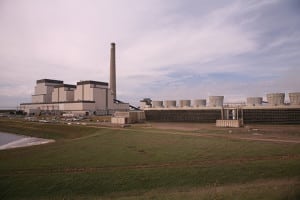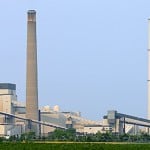A bill signed by Minnesota’s Gov. Mark Dayton (D) on February 28 allows Xcel Energy to build a 786-MW combined cycle gas-fired power plant without approval from state regulators.
The governor signed Chapter 5, House File 113, a bill that had bipartisan support of the state’s legislators, to allow the Minneapolis-based power company to move forward with the closure of two of its wholly owned 682-MW units at the 2,238-MW coal-fired Sherco plant in Becker, Minn., and replace them with a natural gas–fired unit.
The site hosts a third coal-fired unit that was added in 1987 and is 41% owned by Southern Minnesota Municipal Power Agency, a cooperative of municipal power companies.
Conflicting State Priorities
The Minnesota Public Utilities Commission (PUC) in October 2016 approved Xcel’s plans to shut down Unit 1, built in 1976, by 2026, and Unit 2, built in 1977, by 2023, in a move that would help the state meet carbon reduction goals. But, the PUC stopped short of approving Xcel’s proposal to build the large gas-fired power plant on the Sherco site, requiring Xcel to evaluate cost-effective renewable energy and transmission alternatives to help compensate for lost power from the shuttered coal plants.

The PUC determined that closure of Sherco Unit 1 in 2026 will likely spur the need for about 750 MW of “intermediate capacity,” noting that Xcel would likely need new generating capacity, owing to its retirement of roughly 850 MW of aging peaking plants and the expiration of power purchase agreements for more than 2,000 MW. In a January 11, 2017, order, however, it concluded that “it is premature at this time to determine with specificity the fuel type and location to address the identified 750 MW capacity need.”
It added: “In light of rapidly changing costs among potential energy and capacity sources, Xcel must maintain flexibility and consider a broad range of resource options.”
Arguing that the gas plant at the Sherco site was necessary for grid reliability, Xcel asked the Senate energy committee early this year to support a bill that would allow construction of the gas plant at Sherco without the typical regulatory process.
Bills to allow Xcel to build the plant were first introduced in the House on January 9, backed by lawmakers who said the Sherco plant represents more than 75% of Becker’s property taxes. The bill passed the House with a bipartisan vote of 80–45 on February 20 and the Senate with a vote of 39–25 on February 23.
“This project is of critical importance for Becker and its surrounding area,” said Gov. Dayton in a statement announcing the signing of the bill on February 28. “It requires an immediate certainty that the PUC review process cannot provide. It will support good jobs, as Xcel transitions from coal to cleaner natural gas.”
Advocacy Groups Unhappy
The measure, however, has its critics. According to clean energy advocates—including the Minnesota Center for Environmental Advocacy (MCEA), Fresh Energy, the Sierra Club, and Wind of the Wires—circumventing the PUC process and getting the Minnesota Legislature’s approval to get the Xcel gas plant built is unusual.
“We certainly hope this will not become a precedent for future utility infrastructure decisions,” said MCEA in a February 28 statement. “Xcel’s success in jamming through legislation to build and own a huge natural gas plant without ever having to show it is economical or needed is a major disappointment to MCEA.” One concern is that Xcel Energy is a monopoly, the group said, which is why customers rely on the PUC’s oversight to “keep the company in check.”
The advocacy group said it participated, along with many other stakeholders, in extensive proceedings at the PUC that resulted in the company’s recent resource plan being approved. “As a result, Xcel was invited to apply for a certificate of need for new generation. The process that protects ratepayers was working, and this legislation undermined it.”
For Xcel Energy—a company committed to renewable generation but which wants to choose its own green path (see POWER’s in-depth March 2016 profile on the company)—planning for the gas plant will be integral to delivering reliable electricity for central Minnesota. “The Becker natural gas plant is a key component of the Xcel Energy plan to cost-effectively transition our energy fleet to cleaner energy and more renewable resources,” said Chris Clark, president of Xcel Energy-Minnesota, in a statement.
The company noted that just a day before Dayton signed the bill, state legislators advanced a bill to increase the state’s renewable energy standard from 25% by 2025 to 50% by 2030.
Under a 2007 statute, Xcel has a separate, more aggressive requirement of getting 31.5% of its power from renewables by 2020.
Xcel has been the nation’s leading wind energy provider for 12 consecutive years. In 2015, about 23% of its total electricity supply came from wind, hydro, solar, and biomass. The majority of its electricity supply, however, came from coal (43%) and natural gas (23%). About 11% came from nuclear.
—Sonal Patel, associate editor (@POWERmagazine, @sonalcpatel)










